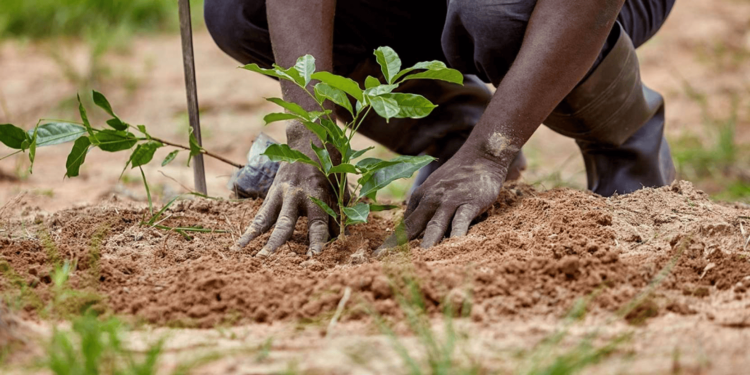As Nigeria grapples with environmental challenges like deforestation, desertification, and climate change, a new wave of entrepreneurs is turning to an innovative and eco-friendly solution: tree planting.
This once-overlooked venture is rapidly gaining traction, fueled by increasing awareness of environmental sustainability, government initiatives, and global carbon credit markets. For many, tree planting is becoming more than just an environmental act, it is a business opportunity with tremendous growth potential.
Whilst tree planting in Nigeria is not just a response to environmental degradation, it is evolving into a profitable business model. Nigeria, with its vast arable land and diverse climates, has the perfect conditions for a variety of tree species, ranging from fruit-bearing trees like mango and cashew to commercial timber trees like mahogany and teak.
Entrepreneurs and agricultural experts alike are recognising that, with the right planning and execution, tree planting can offer both short-term and long-term returns. Tree planting can generate income in various ways, making it an attractive option for both small-scale farmers and large investors.
Options open for investors include timber production as trees like teak, mahogany, and eucalyptus are in high demand for their timber. Growing to maturity in about 10-20 years, these trees can be harvested and sold for construction and furniture-making. The growing urbanisation in the country means there will be a steady demand for quality timber.
There is also the advantage of land appreciation. Asides from the income from the trees planted, tree planting is also a form of real estate investment as the value of the land also appreciates along with the maturity of the trees, offering an additional avenue for income. Well-managed forestland can become a valuable asset over time.
Many entrepreneurs are also combining tree planting with crop farming, creating integrated systems that boost land productivity. Fast-growing trees can provide shade for crops like cocoa and cassava, helping to improve yields while also ensuring long-term returns from the trees themselves.
It can also serve a dual purpose of revenue generation alongside eco-tourism and conservation, as people are willing to pay for experiences involving nature conservation, wildlife preservation, and sustainable tourism.
Investments can also be in non-timber products such as trees can provide products like rubber, resin, or essential oils, which have industrial applications and can be sold throughout the life of the tree.
Despite the growing potential, starting a tree planting business in Nigeria comes with challenges. The initial investment in land, seedlings, and maintenance can be costly, and the long wait for trees to mature requires patience.
Additionally, entrepreneurs face risks related to land tenure disputes, fluctuating timber prices, and the impact of climate change on tree growth.
Tree planting is emerging as a promising business opportunity in Nigeria, with the potential to address the country’s environmental challenges while offering lucrative returns. As awareness grows and support from both the government and international organisations increases, more Nigerians are expected to embrace this green enterprise, transforming forests into future financial gains.
It can be a profitable business when approached with careful planning and a long-term outlook, particularly if it’s integrated with other income-generating activities like agroforestry or carbon credit trading. With the right strategy, tree planting could not only be Nigeria’s next big business but also a vital contributor to the global fight against climate change.



